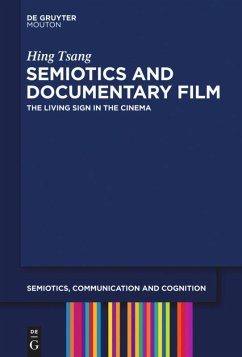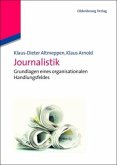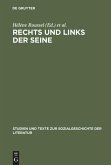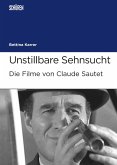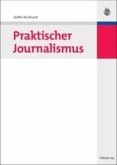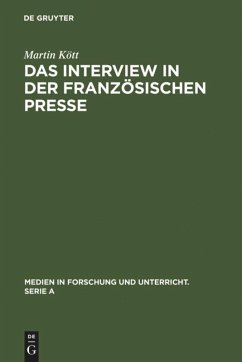Semiotics and Documentary Film: The Living Sign in the Cinema engages with very vital problems posed by Peirce's philosophy in an innovative and inter-disciplinary fashion by examining how documentary film practice can engage with the question of emergent human agency within a wider biosphere shared by human animals and non-human animals alike.
The book is in many ways a celebration of human inquiry, taking liberally from Peirce's semeiotic and parallel ideas within recent visual anthropology. Through an analysis of the work of three renowned filmmakers - Jon Jost, Johan Van der Keuken, and Rithy Panh - Semiotics and Documentary Film: The Living Sign in the Cinema reasserts human agency within a global age, dominated by philosophical scepticism and an unquestioning subservience to mechanistic military techno-culture.
The author argues that an approach to documentary inquiry, broadly derived from Peirce's sign theory, phenomenology, and overall philosophical outlook, has strong advantages over atemporal formal approaches derived from Saussurean semiology.
Nevertheless, this project is also both critical and self-critical. It also bears direct testament to the many tumultuous and life-destroying events of the late 20th century and reminds us of the moral and philosophical problems which we are still grappling with in the early 21st century. Hence - the Living Sign.
Hinweis: Dieser Artikel kann nur an eine deutsche Lieferadresse ausgeliefert werden.
The book is in many ways a celebration of human inquiry, taking liberally from Peirce's semeiotic and parallel ideas within recent visual anthropology. Through an analysis of the work of three renowned filmmakers - Jon Jost, Johan Van der Keuken, and Rithy Panh - Semiotics and Documentary Film: The Living Sign in the Cinema reasserts human agency within a global age, dominated by philosophical scepticism and an unquestioning subservience to mechanistic military techno-culture.
The author argues that an approach to documentary inquiry, broadly derived from Peirce's sign theory, phenomenology, and overall philosophical outlook, has strong advantages over atemporal formal approaches derived from Saussurean semiology.
Nevertheless, this project is also both critical and self-critical. It also bears direct testament to the many tumultuous and life-destroying events of the late 20th century and reminds us of the moral and philosophical problems which we are still grappling with in the early 21st century. Hence - the Living Sign.
Hinweis: Dieser Artikel kann nur an eine deutsche Lieferadresse ausgeliefert werden.
"This book contributes to an important change in the critical discourse surrounding documentary. It offers an intellectually serious and rigorously argued case for a new approach and it engages with an impressive range of sources that cut across the conventional boundaries of scholarship."
- Professor Anna Grimshaw, Emory University, co-author of Observational Cinema: Anthropology, Film and the Exploration of Social Life
"Hing Tsang's monograph provides a bridge between documentary and ethnographic film, and phenomenology, pragmatics, and theories of documentary film. It also makes a very important contribution to the field of documentary studies by exploring the specific contribution that has been and is still being made by visual anthropology and by updating and extending the ways in which Peirce's ideas can be seen to be relevant." - Helen Hughes, Senior Lecture in Film Studies, University of Surrey, author of Green Documentary: Contemplation, Irony, Argument
"This book reintroduces key ideas from Peirce's philosophy in a fashion that is accessible for non-specialists. It also provides a detailed and engaging analysis of the work of three world-class filmmakers." - John Berra, Lecturer in Film Studies at Tsinghua University, editor of the Directory of World Cinema: American Independent
- Professor Anna Grimshaw, Emory University, co-author of Observational Cinema: Anthropology, Film and the Exploration of Social Life
"Hing Tsang's monograph provides a bridge between documentary and ethnographic film, and phenomenology, pragmatics, and theories of documentary film. It also makes a very important contribution to the field of documentary studies by exploring the specific contribution that has been and is still being made by visual anthropology and by updating and extending the ways in which Peirce's ideas can be seen to be relevant." - Helen Hughes, Senior Lecture in Film Studies, University of Surrey, author of Green Documentary: Contemplation, Irony, Argument
"This book reintroduces key ideas from Peirce's philosophy in a fashion that is accessible for non-specialists. It also provides a detailed and engaging analysis of the work of three world-class filmmakers." - John Berra, Lecturer in Film Studies at Tsinghua University, editor of the Directory of World Cinema: American Independent

